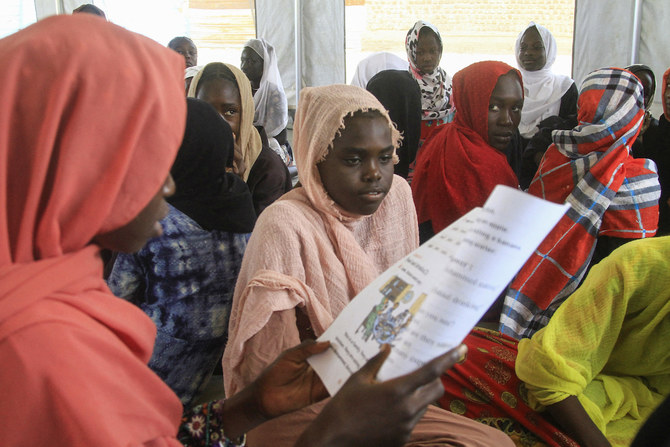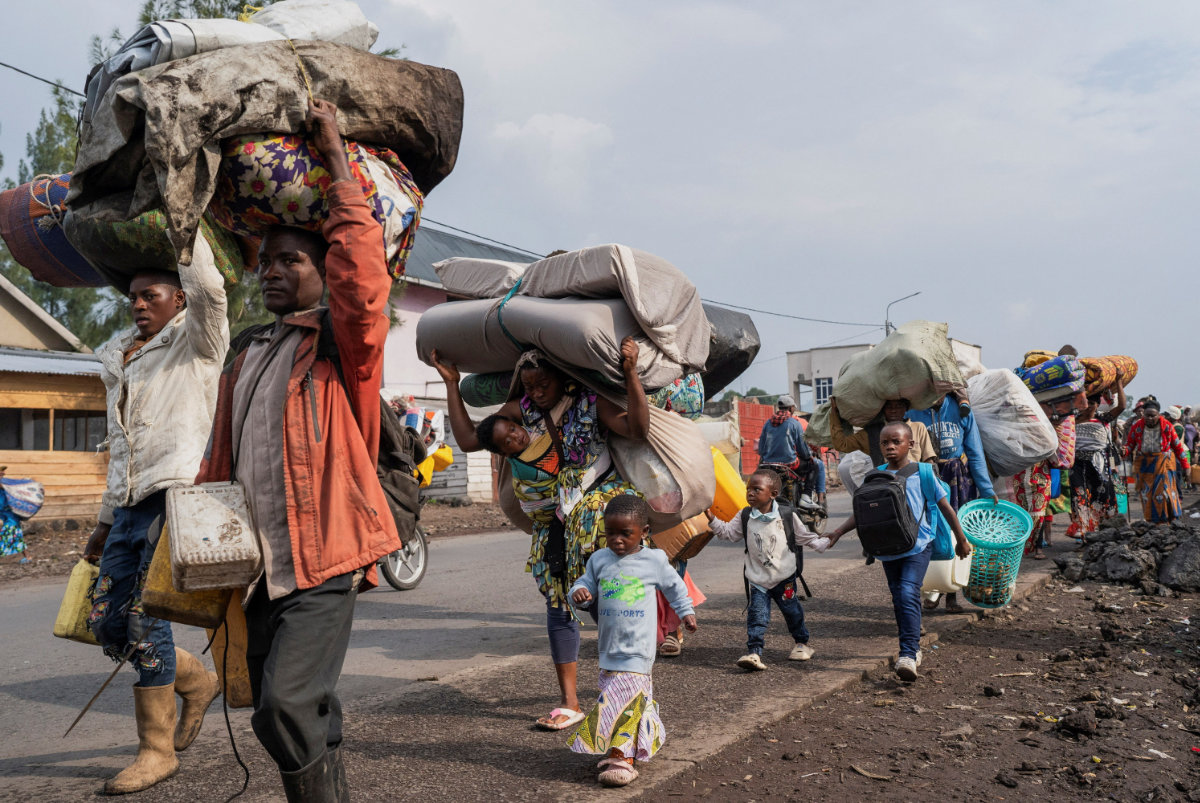LONDON: Children are being left stranded in war zones due to the “impossible” bureaucratic requirements for one of Britain’s few legal routes for asylum-seekers, a charity has told The Guardian.
The UK government has said that the family reunion process allows refugees to safely reunite with loved ones in the country.
However, a new report from the Refugee and Migrant Forum of East London, a charity that helps vulnerable migrants, reveals that the scheme is “not fit for purpose” and has abandoned applicants, putting them at risk of trafficking, or even death.
RAMFEL reported that when the conflict in Sudan erupted in April 2023, it was assisting 14 people, all of whom were eligible to travel to the UK under the scheme.
More than a year later, eight people remain trapped there, “facing extreme risks.” Several of the children previously fled Eritrea, where men, women, and children face forced mass conscription.
In some cases, teenagers have fled Sudan via irregular routes. One boy was detained in Libya, and another unaccompanied child was trafficked to South Sudan and raped.
The UK government has closed its visa application center in Khartoum but has not waived the requirement for applicants to register their fingerprints and biometric data in person.
“Visa application centers are open and operating in neighboring countries,” a Home Office letter, seen by The Guardian, reads.
“However, travel across Sudan is conducted at your own risk, and under your own discretion, considering whether it is safe to do so,” it added.
Eritrean refugee Yusef, who is living in the UK, shared his efforts to bring his two young brothers, now aged 17 and 14, to join him. They fled to Sudan alone after their mother died and their father was seized by Eritrean authorities.
He told The Guardian: “I made the (family reunion) application but the Home Office was saying that there was not a place to test them for tuberculosis or a visa center in Sudan. They said they couldn’t take them.”
His brothers fled north to Egypt, and Yusef said: “They don’t have anyone. How will they survive? If the police find them asleep, they will take them back to Eritrea and they will be put in prison. They are still in this situation and they’re very scared.”
In October of last year, the Home Office declined to consider a request to bypass biometric enrollment for the children. RAMFEL is currently attempting to have them registered in Cairo.
RAMFEL pointed to the Sudan conflict as an example of the “catastrophic failure” of the family reunion system. The process primarily aids children and spouses of UK residents and can only extend to siblings and other close relatives under a more restrictive scheme.
The charity argues that the flawed system is pushing more refugees toward irregular routes, leading to an increase in small boat crossings over the English Channel, which have reached record levels.
Nick Beales, head of campaigning at RAMFEL, said: “The UK’s family reunion system is not fit for purpose and this report shows that it does not act as an effective safe route for refugees seeking to come to the UK.
“For people in places such as Sudan and Gaza, they are prevented from even applying for family reunion due to the government’s inflexible and unreasonable insistence on them attending non-existing visa application centers.
“This leaves those in conflict zones, including unaccompanied children, with no choice but to take dangerous journeys in search of family reunification.”
RAMFEL called on the next government to create a process that allowed those with loved ones in the UK to swiftly and safely secure visas for legal travel to Britain.



























